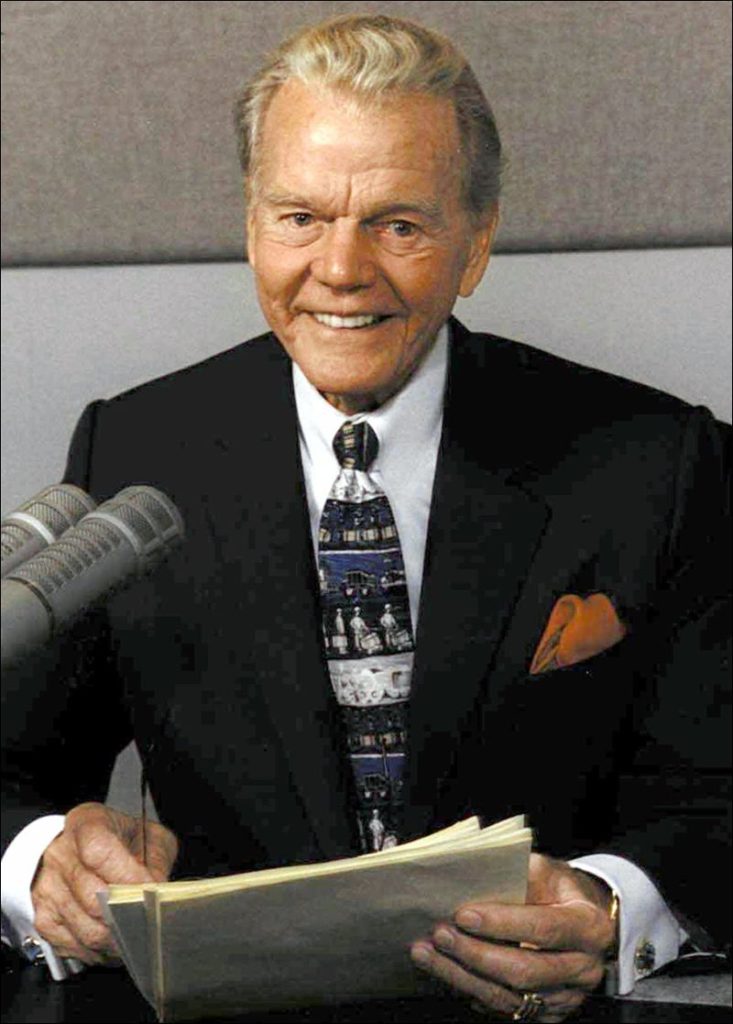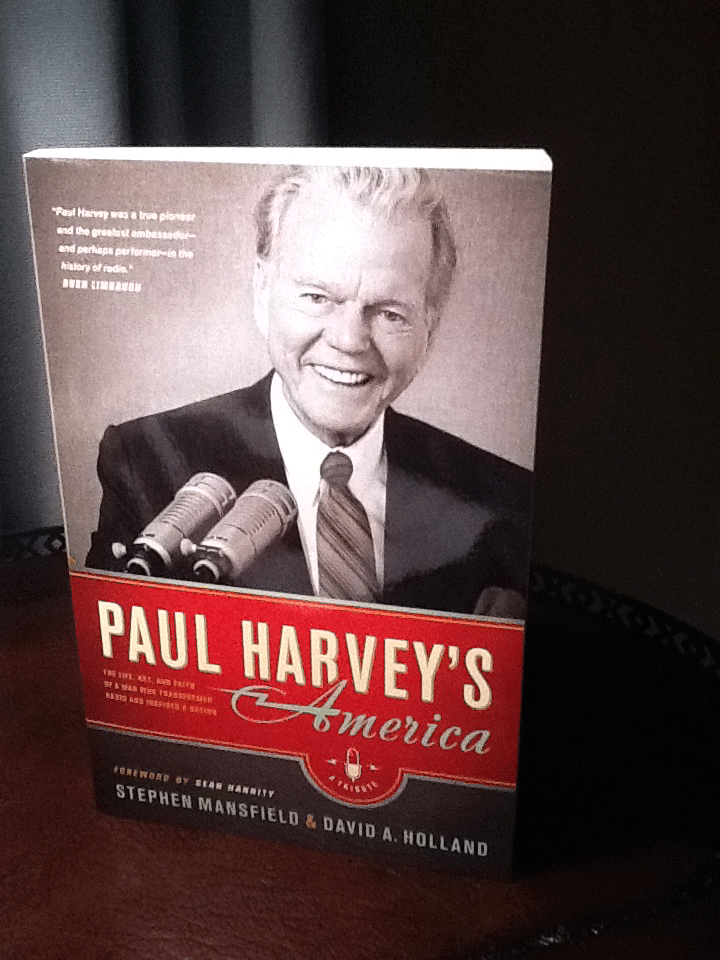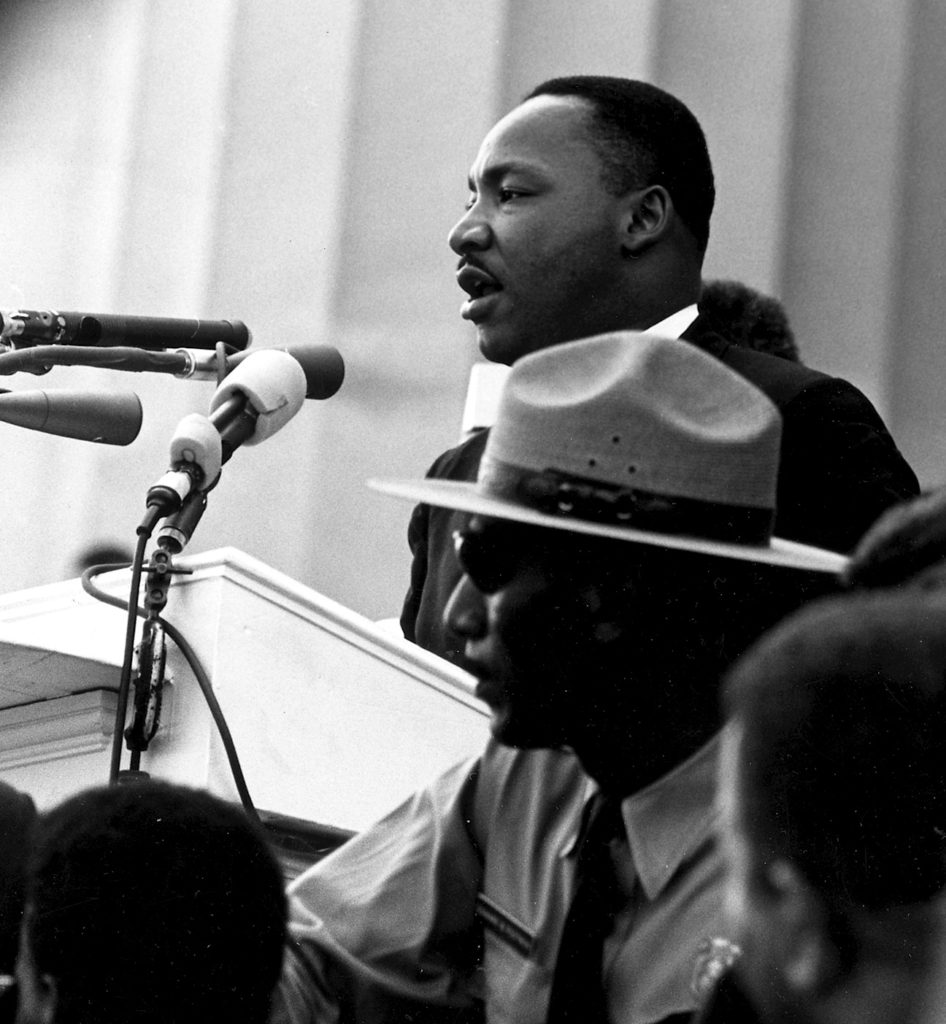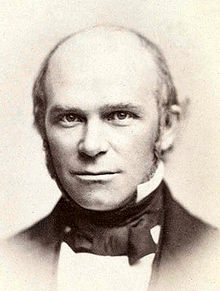
Paul Harvey passed away ten years ago today. In tribute, here are a few words we wrote at the end of the Introduction to “Paul Harvey’s America.” They still ring true for me:
“There are some who suspect that something in America died with Paul Harvey—or is dying as time relentlessly claims the remnants of what has come to be known as “the greatest generation.” Something precious and noble and good.
“And though Paul Harvey is gone and his generation is now passing away, perhaps the flame of that American spirit can be rekindled in remembering who they were and what they meant to us. Paul Harvey, ever the optimist, would have believed so.
“On the pages that follow, then, let’s gather ‘round the fire of this amazing life and warm ourselves in its good-humored glow. Perhaps we’ll take away a few sparks and embers that can light our way in the gathering gloom of the twenty-first century.”—Paul Harvey’s America









